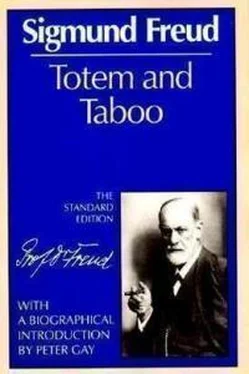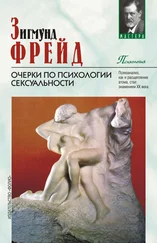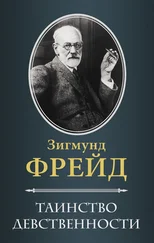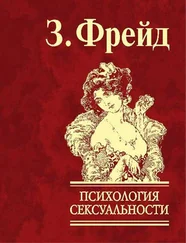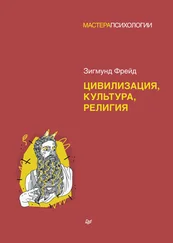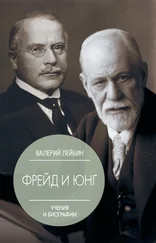Зигмунд Фрейд - Totem and Taboo
Здесь есть возможность читать онлайн «Зигмунд Фрейд - Totem and Taboo» весь текст электронной книги совершенно бесплатно (целиком полную версию без сокращений). В некоторых случаях можно слушать аудио, скачать через торрент в формате fb2 и присутствует краткое содержание. Год выпуска: 2014, Издательство: epubBooks Classics, Жанр: Психология, на английском языке. Описание произведения, (предисловие) а так же отзывы посетителей доступны на портале библиотеки ЛибКат.
- Название:Totem and Taboo
- Автор:
- Издательство:epubBooks Classics
- Жанр:
- Год:2014
- ISBN:нет данных
- Рейтинг книги:3 / 5. Голосов: 1
-
Избранное:Добавить в избранное
- Отзывы:
-
Ваша оценка:
- 60
- 1
- 2
- 3
- 4
- 5
Totem and Taboo: краткое содержание, описание и аннотация
Предлагаем к чтению аннотацию, описание, краткое содержание или предисловие (зависит от того, что написал сам автор книги «Totem and Taboo»). Если вы не нашли необходимую информацию о книге — напишите в комментариях, мы постараемся отыскать её.
Totem and Taboo — читать онлайн бесплатно полную книгу (весь текст) целиком
Ниже представлен текст книги, разбитый по страницам. Система сохранения места последней прочитанной страницы, позволяет с удобством читать онлайн бесплатно книгу «Totem and Taboo», без необходимости каждый раз заново искать на чём Вы остановились. Поставьте закладку, и сможете в любой момент перейти на страницу, на которой закончили чтение.
Интервал:
Закладка:
In this connexion some features were formed which henceforth determined the character of every religion. The totem religion had issued from the sense of guilt of the sons as an attempt to palliate this feeling and to conciliate the injured father through subsequent obedience. All later religions prove to be attempts to solve the same problem, varying only in accordance with the stage of culture in which they are attempted and according to the paths which they take; they are all, however, reactions aiming at the same great event with which culture began and which ever since has not let mankind come to rest.
There is still another characteristic faithfully preserved in religion which already appeared in totemism at this time. The ambivalent strain was probably too great to be adjusted by any arrangement, or else the psychological conditions are entirely unfavourable to any kind of settlement of these contradictory feelings. It is certainly noticeable that the ambivalence attached to the father complex also continues in totemism and in religions in general. The religion of totemism included not only manifestations of remorse and attempts at reconciliation, but also serves to commemorate the triumph over the father. The gratification obtained thereby creates the commemorative celebration of the totem feast at which the restrictions of subsequent obedience are suspended, and makes it a duty to repeat the crime of parricide through the sacrifice of the totem animal as often as the benefits of this deed, namely, the appropriation of the father’s properties, threaten to disappear as a result of the changed influences of life. We shall not be surprised to find that a part of the son’s defiance also reappears, often in the most remarkable disguises and inversions, in the formation of later religions.
If thus far we have followed, in religion and moral precepts—but little differentiated in totemism—the consequences of the tender impulses towards the father as they are changed into remorse, we must not overlook the fact that for the most part the tendencies which have impelled to parricide have retained the victory. The social and fraternal feelings on which this great change is based, henceforth for long periods exercises the greatest influence upon the development of society. They find expression in the sanctification of the common blood and in the emphasis upon the solidarity of life within the clan. In thus ensuring each other’s lives the brothers express the fact that no one of them is to be treated by the other as they all treated the father. They preclude a repetition of the fate of the father. The socially established prohibition against fratricide is now added to the prohibition against killing the totem, which is based on religious grounds. It will still be a long time before the commandment discards the restriction to members of the tribe and assumes the simple phraseology: Thou shalt not kill. At first the brother clan has taken the place of the father horde and was guaranteed by the blood bond. Society is now based on complicity in the common crime, religion on the sense of guilt and the consequent remorse, while morality is based partly on the necessities of society and partly on the expiation which this sense of guilt demands.
Thus psychoanalysis, contrary to the newer conceptions of the totemic system and more in accord with older conceptions, bids us argue for an intimate connexion between totemism and exogamy as well as for their simultaneous origin.
I am under the influence of many strong motives which restrain me from the attempt to discuss the further development of religions from their beginning in totemism up to their present state. I shall follow out only two threads as I see them appearing in the weft with especial distinctness: the motive of the totem sacrifice and the relation of the son to the father [214] Compare Transformations and Symbols of the Libido , by C. G. Jung, in which some dissenting points of view are represented.
.
Robertson Smith has shown us that the old totem feast returns in the original form of sacrifice. The meaning of the rite is the same: sanctification through participation in the common meal. The sense of guilt, which can only be allayed through the solidarity of all the participants, has also been retained. In addition to this there is the tribal deity in whose supposed presence the sacrifice takes place, who takes part in the meal like a member of the tribe, and with whom identification is effected by the act of eating the sacrifice. How does the god come into this situation which originally was foreign to him?
The answer might be that the idea of god had meanwhile appeared,—no one knows whence—and had dominated the whole religious life, and that the totem feast, like everything else that wished to survive, had been forced to fit itself into the new system. However, psychoanalytic investigation of the individual teaches with especial emphasis that god is in every case modelled after the father and that our personal relation to god is dependent upon our relation to our physical, fluctuating and changing with him, and that god at bottom is nothing but an exalted father. Here also, as in the case of totemism, psychoanalysis advises us to believe the faithful, who call god father just as they called the totem their ancestor. If psychoanalysis deserves any consideration at all, then the share of the father in the idea of a god must be very important, quite aside from all the other origins and meanings of god upon which psychoanalysis can throw no light. But then the father would be represented twice in primitive sacrifice, first as god, and secondly as the totem–animalsacrifice, and we must ask, with all due regard for the limited number of solutions which psychoanalysis offers, whether this is possible and what the meaning of it may be.
We know that there are a number of relations of the god to the holy animal (the totem and the sacrificial animal): 1. Usually one animal is sacred to every god, sometimes even several animals. 2. In certain, especially holy, sacrifices, the so–called ‘mystical’ sacrifices, the very animal which had been sanctified through the god was sacrificed to him [215] Robertson Smith, Religion of the Semites , Second Edition, 1907.
. 3. The god was often revered in the form of an animal, or from another point of view, animals enjoyed a godlike reverence long after the period of totemism. 4. In myths the god is frequently transformed into an animal, often into the animal that is sacred to him. From this the assumption was obvious that the god himself was the animal, and that he had evolved from the totem animal at a later stage of religious feeling. But the reflection that the totem itself is nothing but a substitute for the father relieves us of all further discussion. Thus the totem may have been the first form of the father substitute and the god a later one in which the father regained his human form. Such a new creation from the root of all religious evolution, namely, the longing for the father, might become possible if in the course of time an essential change had taken place in the relation to the father and perhaps also to the animal.
Such changes are easily divined even if we disregard the beginning of a psychic estrangement from the animal as well as the disintegration of totemism through animal domestication [216] See above, p. 128.
. The situation created by the removal of the father contained an element which in the course of time must have brought about an extraordinary increase of longing for the father. For the brothers who had joined forces to kill the father had each been animated by the wish to become like the father and had given expression to this wish by incorporating parts of the substitute for him in the totem feast. In consequence of the pressure which the bonds of the brother clan exercised upon each member, this wish had to remain unfulfilled. No one could or was allowed to attain the father’s perfection of power, which was the thing they had all sought. Thus the bitter feeling against the father which had incited to the deed could subside in the course of time, while the longing for him grew, and an ideal could arise having as a content the fullness of power and the freedom from restriction of the conquered primal father, as well as the willingness to subject themselves to him. The original democratic equality of each member of the tribe could no longer be retained on account of the interference of cultural changes; in consequence of which there arose a tendency to revive the old father ideal in the creation of gods through the veneration of those individuals who had distinguished themselves above the rest. That a man should become a god and that a god should die, which to–day seems to us an outrageous presumption, was still by no means offensive to the conceptions of classical antiquity [217] “To us moderns, for whom the breach which divides the human and divine has deepened into an impassable gulf, such mimicry may appear impious, but it was otherwise with the ancients. To their thinking gods and men were akin, for many families traced their descent from a divinity, and the deification of a man probably seemed as little extraordinary to them as the canonization of a saint seems to a modern Catholic.” Frazer, The Golden Bough , I; The Magic Art and the Evolution of Kings , II, p. 177.
. But the deification of the murdered father from whom the tribe now derived its origin, was a much more serious attempt at expiation than the former covenant with the totem.
Интервал:
Закладка:
Похожие книги на «Totem and Taboo»
Представляем Вашему вниманию похожие книги на «Totem and Taboo» списком для выбора. Мы отобрали схожую по названию и смыслу литературу в надежде предоставить читателям больше вариантов отыскать новые, интересные, ещё непрочитанные произведения.
Обсуждение, отзывы о книге «Totem and Taboo» и просто собственные мнения читателей. Оставьте ваши комментарии, напишите, что Вы думаете о произведении, его смысле или главных героях. Укажите что конкретно понравилось, а что нет, и почему Вы так считаете.
